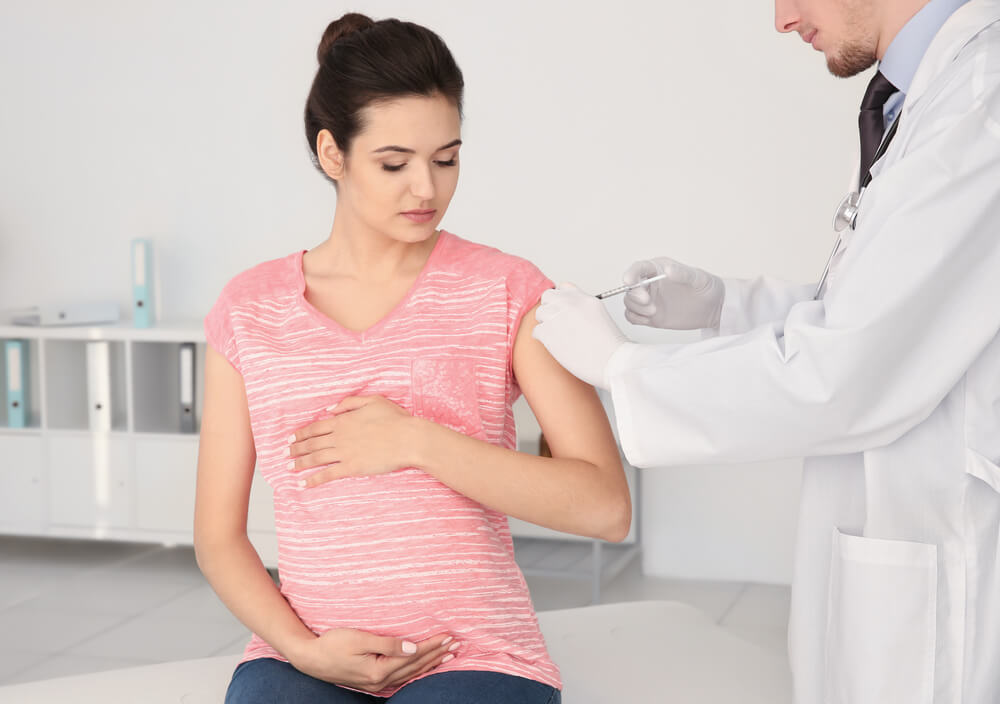
How Does Mumps Affect Pregnancy
20 May 2022 | 4 min Read
Tinystep
Author | 2574 Articles

Mumps is a contagious viral infection caused by a myxovirus (single-stranded RNA viruses, included in the families, orthomyxoviral and paramyxoviral, that causes influenza, mumps and other related viral diseases and infections). The mumps virus mainly affects the salivary glands (parotid salivary glands, which are the largest salivary gland that releases saliva).
Though common amongst the children, mumps can also affect the unimmunized adults.
Also known as the Epidemic Parotitis, mumps can be observed in pregnant women as well. Reports suggest incidences of mumps in 1 to 10 in every 10,000 pregnant women.
Mode of transmission of the viral disease
The virus responsible for mumps thrives mostly in the mucus of the throat and nose of the affected person, in addition to their saliva. In patients, the virus multiplies within the throat, nose, as well as in the lymph node. It can also get into the blood and spread to the other organs of the body. In pregnant women, in particular, the virus can gain access to the placenta, as well as the fetus and cause infection.
Thus, coughing and sneezing cause maximum damage, transmitting the infection from the infected person to another healthy individual. Coming in close contact with the infected person, or touching contaminated items like the handkerchief, tissues, toiletries and utensils can also help spread the infection.
Touching your eyes, nose or mouth with unclean and unwashed hands, after touching the contaminated and infected things, can elevate the chances of the viral disease spreading by a thousand folds.
Signs and symptoms of the viral disease
After the initial infection by the virus, the symptoms appear between 16 to 18 days, though the range is between 12-25 days (referred to as the incubation period).
The characteristic symptoms of mumps include:
1. Swelling of the parotid glands
2. Fever
Other symptoms which develop include:
1. Extreme fatigue and tiredness
2. Chills
3. Headache
4. Myalgia (pain in the muscles)
5. Sore throat
In some cases, a patient develops no symptoms of the disease in spite of being infected.
In adults, a patient takes about 16-18 days to recover from the disease.
Like any other patients, a pregnant woman is a potential carrier of the disease. The most contagious period, when a person (both healthy as well as infected) needs to be careful is, three days before the symptoms appear (swelling of the salivary gland) to nine days after the appearance of the symptoms.
Effect of mumps during pregnancy
The harmful consequences and after-effects of mumps are comparatively less compared to the other viral diseases like measles and rubella. Likewise, mumps during pregnancy seldom affects the pregnant woman or the fetus. However, if a pregnant woman develops mumps during the first trimester, there are chances (though rare) of a miscarriage. There may also be complications (extremely rare) like:
1. Oophoritis (inflammation of the ovary) or mastitis (inflammation of the breasts)
2. Pancreatitis
3. Deafness (mostly permanent)
4. Encephalitis or meningitis
Treatment
The most effective treatment against mumps is the MMR (Mumps, Measles, Rubella) vaccine. Unfortunately, the vaccination is not advisable for pregnant women. The reason lies in the fact that the MMR vaccine contains a live virus that can cause infection and harm the baby. Women who go for the vaccination should postpone their pregnancy by at least a month.
However, the following alternate remedies may provide some relief.
1. For a quick recovery, it is important that one takes proper care of themselves. Rest as much as possible.
2. Drink plenty of fluids.
3. Applying compress, both warm and cold, to the swollen gland can provide some relief.
4. Painkillers like ibuprofen or Tylenol, though effective, should be used under medical supervision, especially for pregnant women.
5. Eat foods that are soft and which require less chewing. Avoid spicy, salty and acidic foods and beverages.
Prevention
A little alertness, especially during pregnancy, can avert the spread of mumps.
1. There should be minimum contact with the affected person.-
2. Avoid sharing your toiletries, utensils and clothes with anyone.
3. Wash hands thoroughly before eating or touching your eyes, nose and mouth.
4. Disinfect contaminated surfaces.
A


Suggestions offered by doctors on BabyChakra are of advisory nature i.e., for educational and informational purposes only. Content posted on, created for, or compiled by BabyChakra is not intended or designed to replace your doctor's independent judgment about any symptom, condition, or the appropriateness or risks of a procedure or treatment for a given person.
